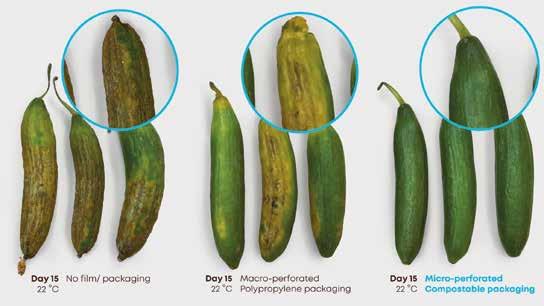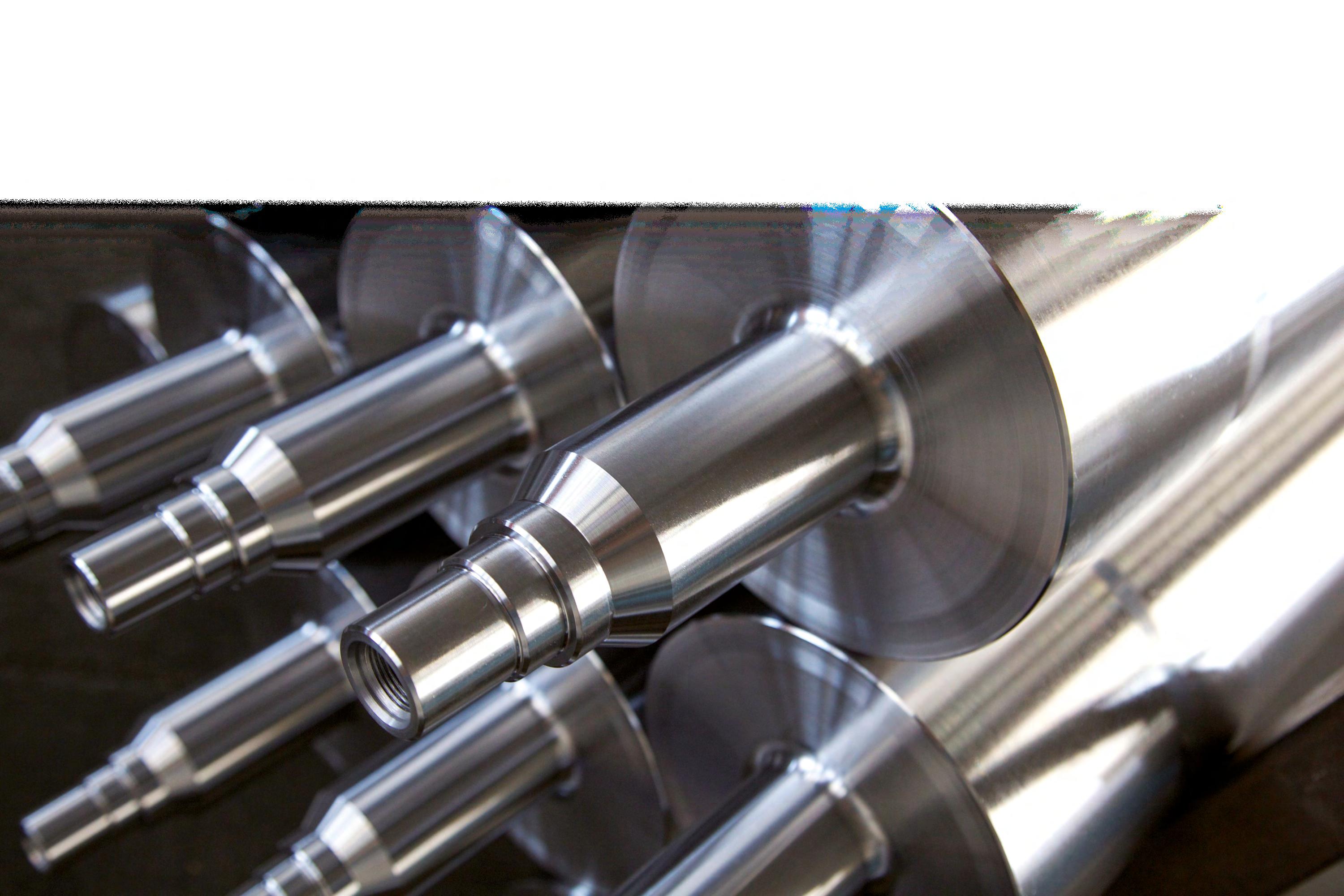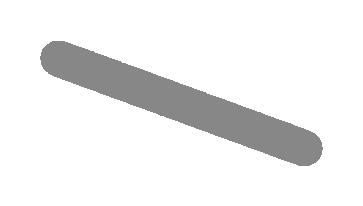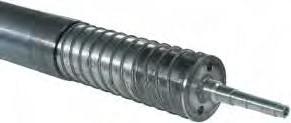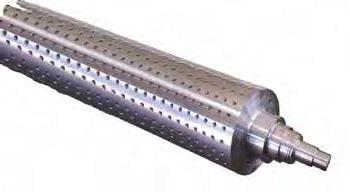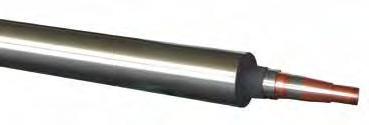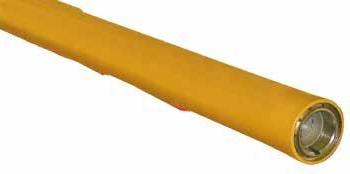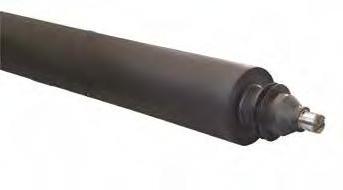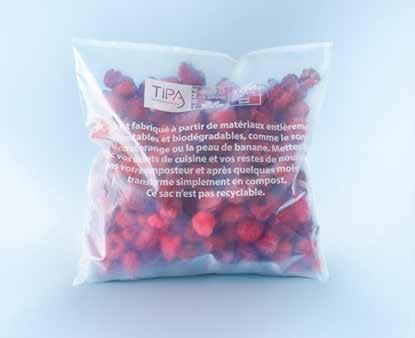
7 minute read
Compostable packaging may allow longer shelf-life of vegetables than conventional plastic
convenzionale. I ricercatori hanno testato le differenze tra confezione compostabile e confezione in plastica convenzionale su cetrioli e peperoni. Entrambe le confezioni, conservate in frigorifero, hanno preservato i peperoni per quattro settimane e i cetrioli per due settimane. Inoltre, le confezioni compostabili, unite a un’adeguata micro-perforazione laser, hanno prolungato la conservazione a temperatura ambiente dei cetrioli fino a 15 giorni, rispetto al massimo di 10 giorni mostrati dalle confezioni in plastica convenzionale. Un vantaggio aggiuntivo delle confezioni compostabili è rappresentato dalla prevenzione della condensa, che facilita il deterioramento degli ortaggi confezionati in plastica convenzionale. Gli imballaggi compostabili usati negli studi sono stati acquistati dal produttore di imballaggi flessibili TIPA® Corp. Lo studio sui cetrioli è stato pubblicato in un numero speciale della rivista Foods in “Recent Advances in Reusable, Recyclable, or Compostable Food Packages” e lo studio sui peperoni è stato pubblicato nella rivista Food Science & Nutrition. Per valutare le differenze tra le confezioni, parte dei prodotti è rimasta senza imballaggio come gruppo di controllo, mentre gli altri prodotti sono stati confezionati con film compostabili non perforati, micro-perforati e macro-perforati oppure in confezioni in polipropilene macro-perforati disponibili in commercio. Successivamente metà dei campioni è stata conservata in modo continuo a 22°C per simulare le condizioni prolungate di conservazione mentre l’altra metà è stata conservata per due giorni a 15°C, altri due giorni a 22°C e fino a sei settimane in un frigorifero domestico a 4°C per simulare le condizioni della catena di fornitura “dall’orto in tavola”. Tutti i prodotti sono stati controllati settimanalmente, per valutare la perdita di peso del prodotto, la disidratazione, l’ammorbidimento, la decomposizione, i danni alla buccia e il sapore. Entrambi gli studi hanno concluso che l’imballaggio compostabile micro-perforato di TIPA costituisce un’alternativa preferibile alla plastica tradizionale per la conservazione degli ortaggi. Per decenni la plastica è stata vista come necessaria per prolungare i tempi di conservazione degli alimenti. Ma questi studi mostrano che la plastica convenzionale, non è più l’unica opzione disponibile. La richiesta di confezioni compostabili sta crescendo anche tra i consumatori. Un sondaggio recente ha rilevato che più di 8 cittadini britannici su 10 preferirebbero che i prodotti alimentari fossero confezionati in
ENGLISH Version Compostable packaging may allow longer shelf-life of vegetables than conventional plastic
Advertisement
PEER REVIEWED RESEARCH FINDS MICRO-PERFORATED COMPOSTABLE PACKAGING MAY OUTPERFORM CONVENTIONAL PLASTIC FOR SHELF-LIFE
Properly designed compostable packaging found to extend shelf-life of cucumbers by 5 days compared to commercially used plastic packages Additional advantage of the compostable packaging was prevention of water condensation that encourages rotting of vegetables wrapped in conventional plastics The results cast new doubt on the claim that conventional plastic packaging provides the only possible solution for preserving freshness on the market. The compostable packages used in the studies were purchased from TIPA® Corporation, a leading producer of compostable materials.
COMPOSTABLE packaging is as effective as conventional plastic and may even outperform it for shelf-life of fresh produce, has been found in two peer reviewed studies, it was recently revealed. The results cast new doubt on the claim that conventional plastic packaging is the only possible solution for preserving freshness on the market and provide an environmentally friendly alternative to the use of conventional plastics. Scientists at the Agricultural Research Organization (ARO), The Volcani Institute (Israel), found compostable packaging enables shelf-life of bell peppers up to 21 days and cucumbers up to 15 days, even better than conventional plastic. Researchers used cucumbers and bell peppers to test the differences between compostable packaging and conventional plastic packaging.
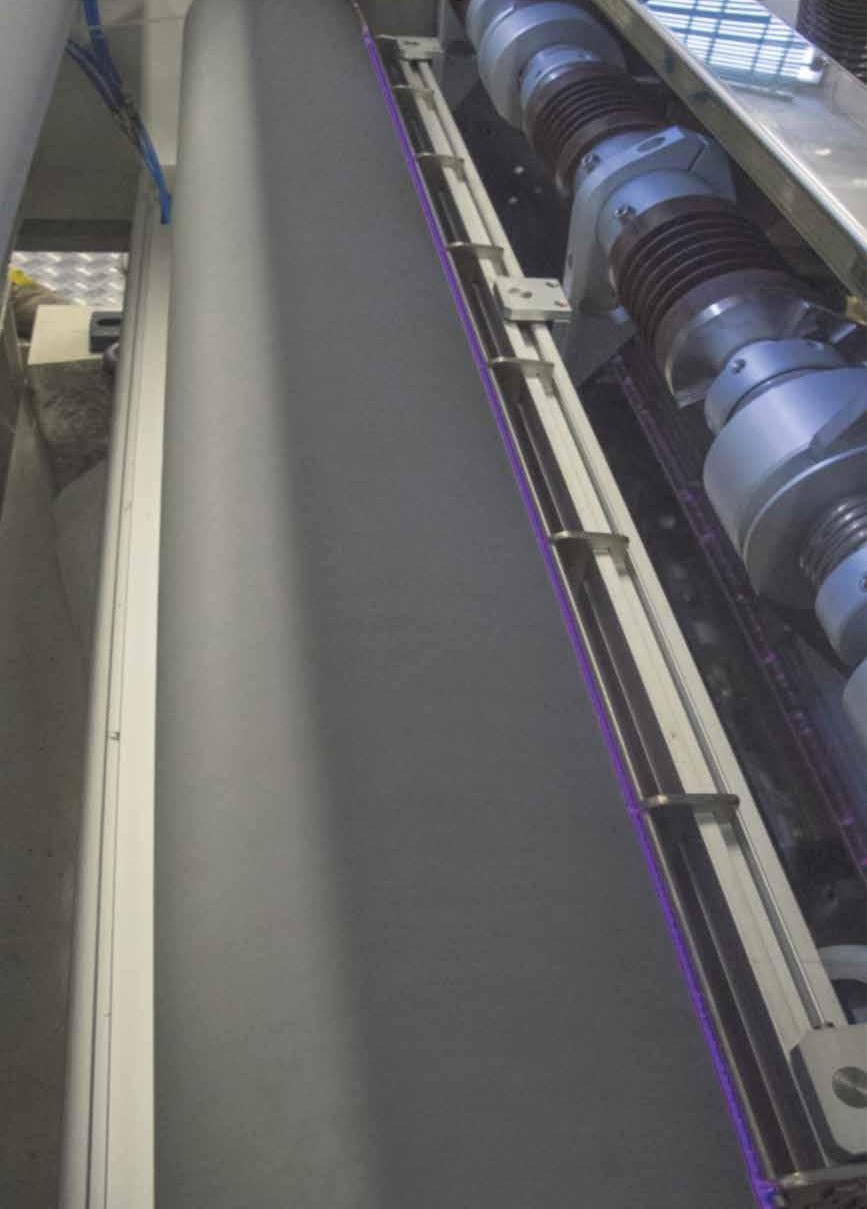
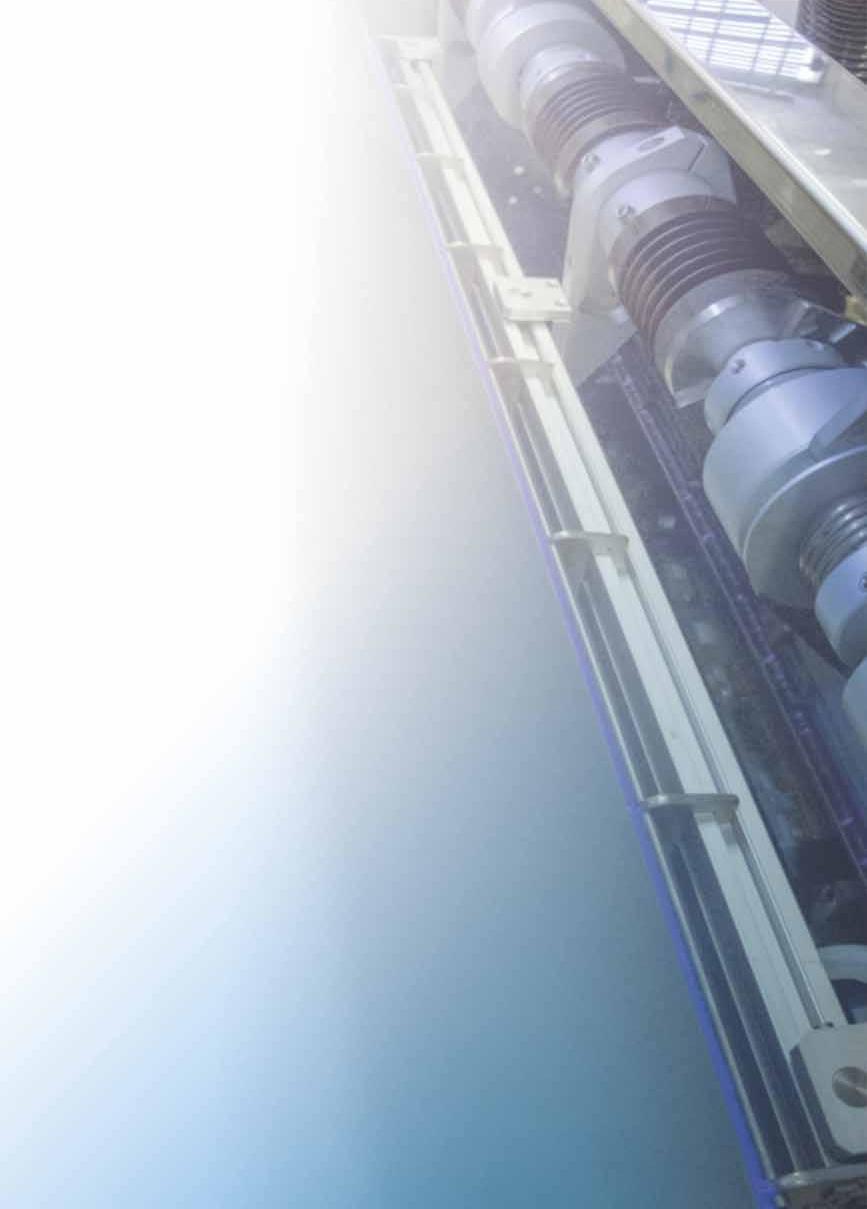
materiale compostabile invece che nella plastica. Sulla base dei risultati ottenuti, i ricercatori ritengono che il concetto secondo il quale la plastica convenzionale è il materiale d’elezione sia ormai superato, e che nuovi materiali concepiti per avere un fine vita breve possano fornire prestazioni migliori. Eli Lancry Ph.D, VP Ricerca e Sviluppo di TIPA, ha dichiarato: “In TIPA siamo convinti da tempo che gli imballaggi compostabili non siano solo funzionali ma rappresentino il futuro delle confezioni per alimenti. La plastica domina le nostre vite da decenni ma questo non vuol dire che le cose non possano cambiare. Dove le confezioni sono necessarie, i materiali compostabili sono ormai una soluzione matura per risparmiare al pianeta tonnellate di rifiuti in plastica”. Dott. Ron Porat, Direttore dell’Institute of Postharvest and Food Sciences, ARO, The Volcani Institute e co-autore degli studi di ricerca insieme al Dott. Victor Rodov e al dottorando Abiola Owoyemi, ha dichiarato: “I risultati ottenuti sono straordinari – dimostrano che le confezioni compostabili sono molto efficaci nel conservare la qualità post-raccolto e limitano il deperimento dei prodotti. Per molto tempo la plastica è sembrata essere l’unica soluzione per conservare gli ortaggi più a lungo, ma questo ha avuto come conseguenza un importante danno per l’ambiente. Gli imballaggi compostabili offrono un’alternativa efficace ed ecosostenibile alla plastica tradizionale”.
ENGLISH Version
Both types of packaging allowed keeping bell peppers for four weeks, and cucumbers for two weeks in refrigerated home storage. In addition, properly designed micro-perforated compostable packages extended the non-refrigerated shelf life of cucumbers up to 15 days, compared to not more than 10 days in conventional plastic packs. Additional advantage of the compostable packaging was prevention of water condensation that encourages rotting of vegetables wrapped in conventional plastics. The compostable packages used in the studies were purchased from TIPA® Corp. The study on cucumbers has been published in a special issue of the journal Foods on “Recent Advances in Reusable, Recyclable, or Compostable Food Packages”, and the study on bell peppers has been published in the journal Food Science & Nutrition. To evaluate the various packages, part of the produce remained unpacked as control, while other produce were packaged in non-perforated, micro-perforated and macro-perforated compostable packaging or in commercial macro-perforated polypropylene packaging. Afterwards, half of the samples were continually stored at 22°C to simulate extended shelf conditions, while the other half were stored for two days at 15°C, a further two days at 22°Cand then up to six weeks of home refrigerator storage at 4°C to simulate farm to fork supply chain conditions. All produce was evaluated weekly, to test for fruit weight loss, shriveling, softening, decay, peel damage and flavor. Both papers concluded that TIPA’s micro-perforated compostable packaging provided a preferable alternative to traditional plastics for vegetable preservation. For decades plastic has been viewed as necessary to extend the shelf-life of foods. But these studies show environment-polluting conventional plastic is no longer the only available option. Demand for these solutions is also growing among consumers. A recent poll found that more than eight-in-ten Britons would rather prefer their food was wrapped in compostable packaging than in traditional plastic. Experts argue that the results show it is time to stop considering conventional plastic as the standout material it was when first created, as innovative waste-free solutions can now outperform it. Eli Lancry Ph.D, VP Technology of TIPA, said “Here at TIPA, we have been confident for a long time that compostable packaging is not only functional, but is the future of how we package our food. Plastic has dominated our lives for decades, but that does not mean things cannot change. Compostable packaging is a ready-made solution to end the scourge of plastic waste where packaging is needed”. Dr Ron Porat, Head of the Institute of Postharvest and Food Sciences, ARO, The Volcani Institute and co-author of the research papers (together with Dr. Victor Rodov and Ph.D. student Abiola Owoyemi), said: “These results are very exciting. They show that compostable packaging is very effective in preserving postharvest quality and reducing losses of various fruits and vegetables. For a long time, plastic appeared to be the only solution for storing food for longer and became a great detriment to the environment as a result. This may provide an efficient, environmentally friendly alternative to conventional plastic packaging”.
